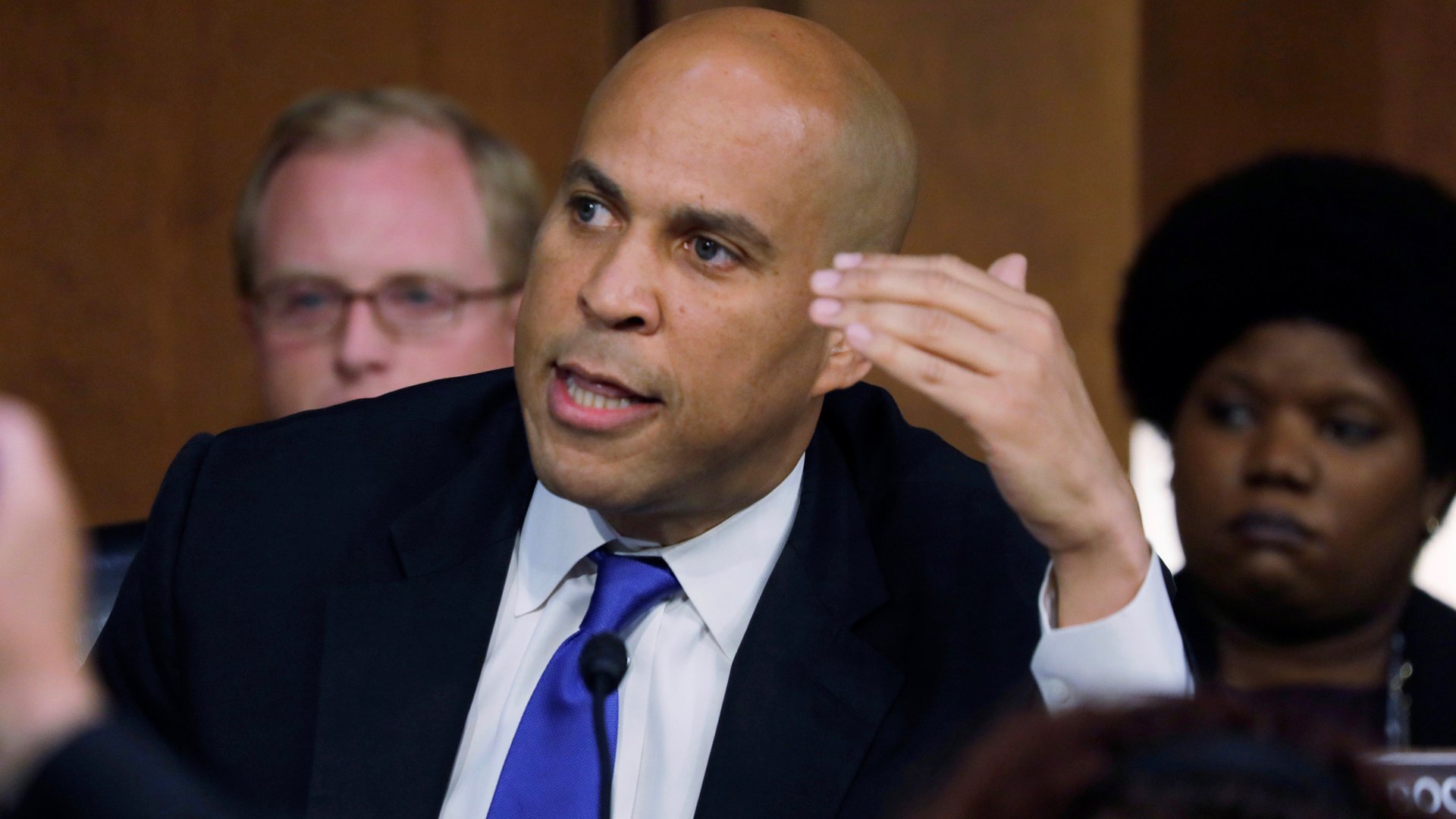Cory Booker will risk expulsion from the Senate to release Kavanaugh emails
Cory Booker isn’t messing around. The New Jersey Democrat says he is willing to risk his US Senate seat to expose Supreme Court nominee Brett Kavanaugh, with the release of an email deemed “committee confidential” that shows Kavanaugh approved racial profiling by police.


Cory Booker isn’t messing around. The New Jersey Democrat says he is willing to risk his US Senate seat to expose Supreme Court nominee Brett Kavanaugh, with the release of an email deemed “committee confidential” that shows Kavanaugh approved racial profiling by police.
Booker challenged his colleagues on the Senate Judiciary Committee today (Sept. 6) to expel him for what he called this act of “civil disobedience,” which he admits would violate Senate rules. “I am, before your process is finished, I am going to release the email about racial profiling,” he said. “I understand the penalty comes with potential ousting from the Senate. I openly invite and accept the consequences of my team releasing that email right now.”
About 141,000 documents linked to Kavanaugh from his years as a staff secretary to former US president George W. Bush have been kept confidential, meaning senators can see them but can’t refer to them in public sessions. Booker and his Democratic colleagues have demanded more time to review the documents, and demanded that many of them be released, arguing the Republican majority is trying to hide Kavanaugh’s most controversial work. “The emails being withheld from the public have nothing to do with national security,” Booker said.
At today’s confirmation hearings, fellow Democrat Amy Klobuchar of Minnesota expressed her support for Booker’s move and reiterated his demand that the emails from Kavanaugh be made public. She cited James Madison’s famous quote, “A popular government, without popular information, or the means of acquiring it, is but a prologue to a farce or a tragedy; or, perhaps both.”
Charles Grassley, the Iowa Republican who chairs the Senate Judiciary Committee and has borne the brunt of much of the Democrats’ disgruntlement over his approach to documents and his penchant for confidentiality, was clearly flustered by Booker’s gambit. He stuttered angrily, pointing out that senators, too, enjoy the privacy of confidentiality rules that protect their emails for 50 years. ”Do you want to give up your emails?” he asked. “I don’t think you do.”
Grassley may be underestimating the resistance to this nominee—and to his rushed confirmation process. Booker, referring to the mere public mention of a confidential document breaking Senate rules, said, “I knowingly violated the rules that were put forth. I’m told the committee confidential rules have knowing consequences…I come from a long line, as all of us do as Americans, of understanding what that kind of civil disobedience is and I understand the consequences.”